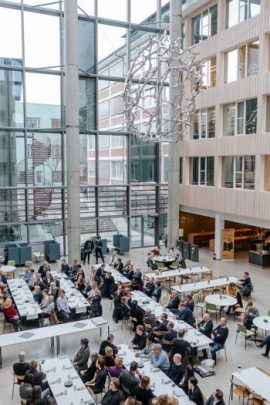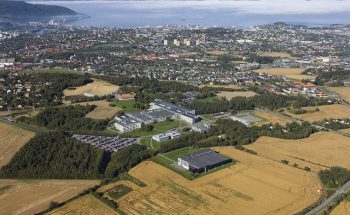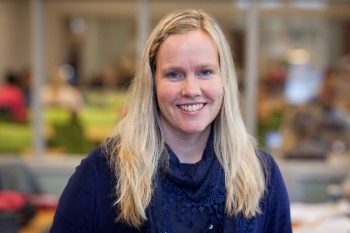Norwegian University of Science and Technology is one of the founding members of the ICSE Consortium
The Norwegian University of Science and Technology (NTNU), situated in Trondheim, Gjøvik and Ålesund, is Norway’s largest university, with about 40 000 students and 7000 employees. NTNU’s Department of Teacher Education (ILU) comprises Norway’s largest academic environment within teacher education and educational research. ILU has a history going back to 1922 with the opening of The Norwegian Teachers College (NLHT), and the establishment of Trondheim Teacher College in 1959. Trondheim Teacher College changed to be Trondheim Teacher University College in 1973, and in 1994 they fusioned with nursery and engineering colleges, establishing a new institution, Sør-Trøndelag University College. The Norwegian Teachers College (NLHT) fusioned with the well-known Norwegian Institute of Technology (NTH), establishing the University of Trondheim in 1968, being the Norwegian University of Science and Technology (NTNU) in 1996. In 2016 the last fusion was fulfilled, Sør-Trøndelag University College was a part of NTNU, and the Department of Teacher Education was established. Today ILU and its employees are building on this rich, broad history, bringing with them a multifaceted picture of teacher education that hopefully is fruitful for the future.

NTNU, Trondheim, main administration building with northern light. Photo: Maxime Landrot / NTNU Comm.Div., CC BY-SA 2.0

NTNU, Department of teacher education, campus Kalvskinnet, from inauguration 2017. Left: Photo: Julie Gloppe Solem/NTNU, CC BY-SA 2.0.
The department offers practical training and profession-oriented bachelor, master and PhD degree programmes; and a broad portfolio of in-service education options for teachers and school administrators. The department educates teachers within a wide range of school and vocational subjects for grades 1 -13. Its practice- and profession-oriented programmes provide a solid foundation for future careers and life-long learning. The department’s skilled teacher educators conduct research and development work geared towards schools, classrooms and workplaces. The purpose of the research is to further develop schools’ overall knowledge, approaches and skills with regard to learning, teaching and collaboration, and to contribute to developing national and international knowledge about learning and education from a lifelong perspective.
NTNU has a profound interest in integrating mathematics, science and workplace education, and has a long tradition of teaching through real tasks and problem-based learning. We educate teachers and leaders who are independent, creative and critical actors in the professional community and in society. Our core values are creative, critical, constructive, respectful and inclusive (NTNU, Strategy 2018-2025: Knowledge for a better school and teacher education).
The mathematics and science research groups within the department have participated in a number of nationally and internationally esteemed research projects (e.g. Learners Perspective Study, EU S-TEAM, EU PRIMAS, Comenius INSTEM, Teaching better Mathematics – TBM, TransMaths Norway, MathTextbook Scandinavia, EU mascil, EU Fasmed, ERASMUS+ IncluSMe, ERASMUS+ EduChange). NTNU has excellent connections to the national mathematics and science centers, the National Center for Science Recruitment, local networks and the regional school authorities.

Trondheim. NTNU Dragvoll Campus. In background the city of Trondheim.
Photo: Erik Børseth, Synlig design og foto as/NTNU Info, CC BY-SA 2.0

Contact person, NTNU: Ragnhild Lyngved Staberg
Based on NTNU’s participation in the abovementioned research projects, we have been a member of ICSE since its initialization and foundation in 2017. Our cooperation with the University of Education in Freiburg and the other consortium members started in 2010. What we value most with our ICSE membership is the collaboration with numerous international partners within the STEM field, the possibilities for enlarging our network, including the connection between researchers, practitioners and policy makers, and the possibilities to develop and implement innovative projects in school and teacher education. For us, some of the highlights in the collaboration until now, have been the possibilities to participate in international projects, organize international conferences and summer schools, develop high-quality classroom materials and professional development materials – that have been successfully implemented in primary and secondary schools, and initial teacher education locally, nationally and internationally. For the future, we are looking forward to strengthening the collaboration through ICSE projects, conferences, summer schools, staff exchanges, co-publishing and an even wider STEM network. The consortium is an excellent arena for knowledge exchange, as well as further development of contact and cooperation outside the consortium as well.
